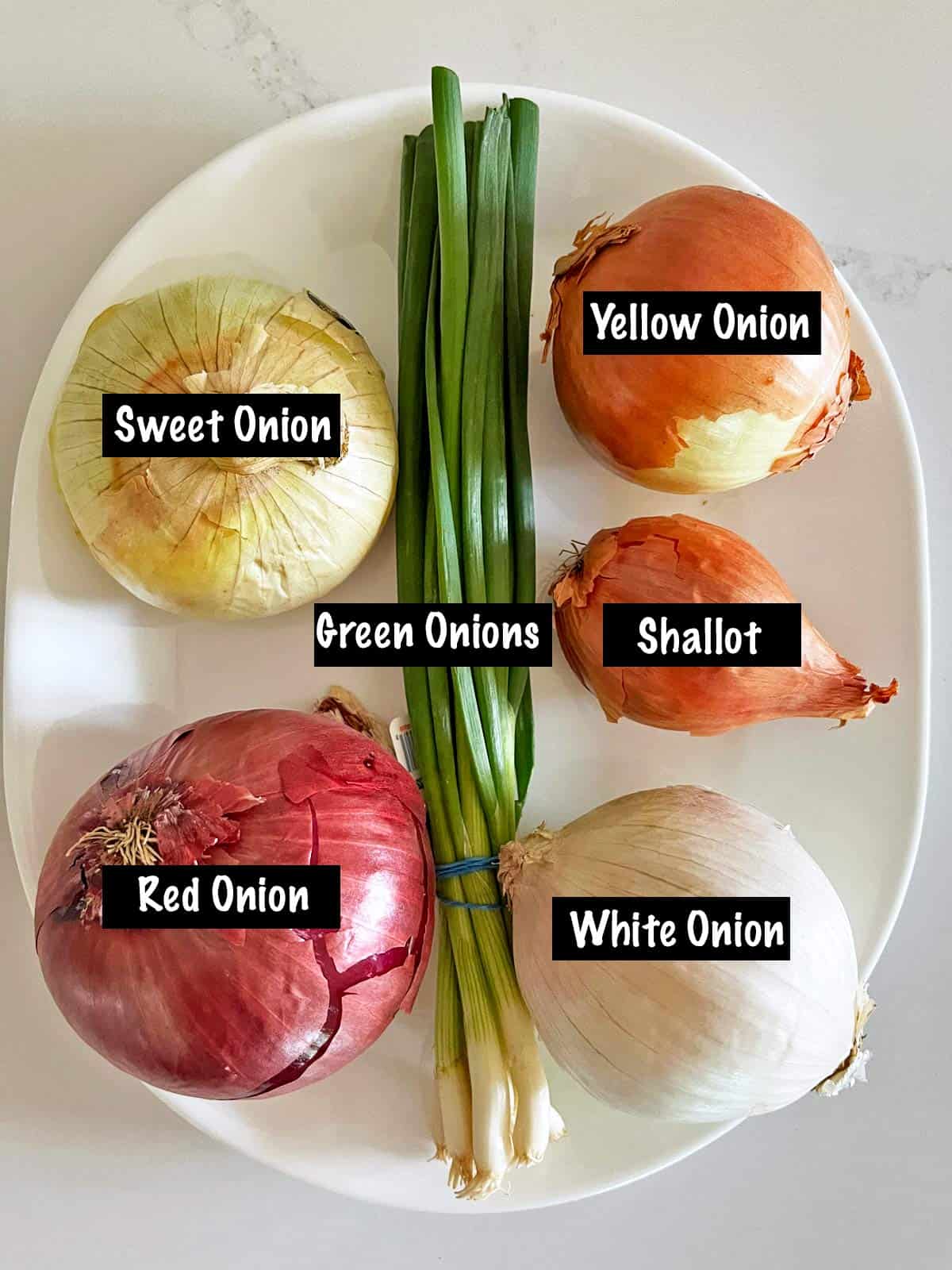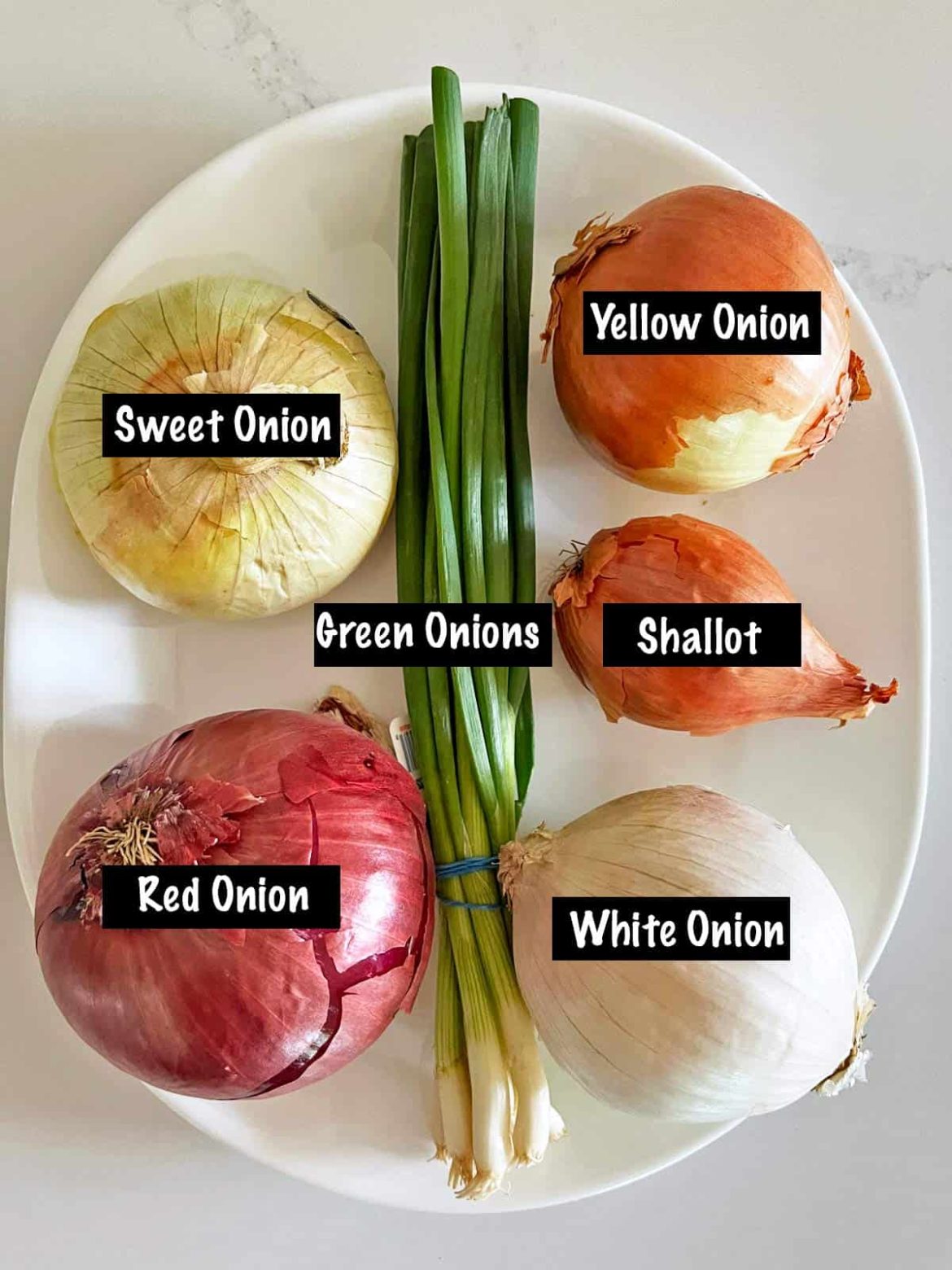When I look at the nearly 600 recipes on this website, many of the savory recipes have some type of onion (or even onion powder). Onions add great flavor to our food!
Here’s a look at six different types of onions often used in everyday cooking.

Yellow Onions
This is the type of onion used most often. It’s sharp and pungent when raw and becomes milder when cooked and sweet when caramelized.
When a recipe calls for onions without specifying the exact variety, you can safely assume it calls for yellow onions. This onion variety caramelizes beautifully – I use it to make caramelized onions and sauteed onions. I also use it to make roasted onions and onion soup.
White Onions
These onions are sharper than yellow onions but are considered to have a cleaner, not as pungent, taste. They are often used in Mexican cuisine and can be added to salads. I don’t often use them in my recipes. However, they can be an acceptable substitute for yellow onions if needed.
Red Onions
Red onions are significantly milder than yellow or white onions, although they CAN be sharp. I use them in salads such as creamy cucumber salad, arugula salad, cauliflower potato salad, and shrimp salad. I also make pickled red onions – one of my favorite condiments – and roasted red onions.
Sweet Onions
Sweet onions such as Vidalia are the mildest of all onion varieties. You can eat them raw – indeed, some people snack on them. They caramelize well thanks to their high sugar content, so you can use them to make caramelized onions. Sometimes, I use them in this Moroccan Chicken recipe. They also pair well with beef liver in this liver and onions recipe.
Shallots
Shallots are small and slightly milder than yellow onions, with a hint of a garlicky flavor. They are excellent roasted – I love them in this caramelized shallots recipe.
Green Onions
Also known as scallions, these young onions are mild enough to be eaten raw, so they make an excellent addition to salads, especially Asian-inspired salads. I use them in Asian cabbage salad, Thai chicken salad, tomato salad, and egg salad.
They are perfect in stir-fries such as chicken vegetable stir-fry or turkey stir-fry. They are also excellent in quiches and frittatas, including crustless broccoli quiche, egg muffins, mushroom frittata, and egg white frittata.
A recipe should tell you if you are to use the green parts only (which are milder) or also the bulbs, which are sharper and more pungent.

